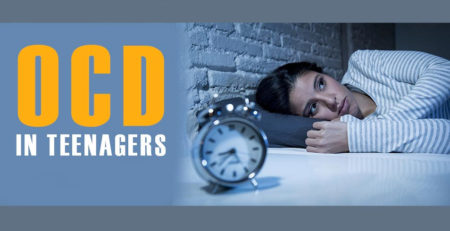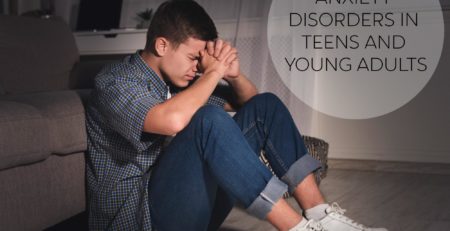Understanding Child Obsessive-Compulsive Disorder
Obsessive-compulsive disorder (OCD) is a mental health condition that affects people of all ages. When it comes to children, this condition can be tricky to identify. After all, it’s only natural for kids to have some quirks and habits. However, if these behaviors start interfering with their daily life, there may be cause for concern. In this blog post, we’ll dive into the world of child OCD, discussing symptoms to look out for, possible causes, and effective treatment options.
Symptoms of Child OCD
As parents, it’s essential to understand that OCD goes beyond simple quirks or routines. In children, OCD presents itself in the form of obsessions and compulsions. Obsessions are recurring, intrusive thoughts or fears that are distressing for the child. Compulsions are repetitive behaviors or mental acts that are performed in an attempt to relieve the anxiety caused by the obsessions. Some common obsessions include a fear of contamination or harm, while compulsions may include excessive hand washing or checking doors and windows. Children with OCD may also have difficulty transitioning or may be extremely rigid about routines.
Excessive hand-washing
One of the most common symptoms of child OCD is excessive hand-washing. This may be due to a fear of germs or contamination. Children with OCD may wash their hands dozens of times daily and become agitated if their hands are not perfectly clean.
Excessive showering or bathing
Like hand-washing, children with OCD may also excessively shower or bathe. This may be due to a fear of germs or contamination, or it may be due to a need for symmetry or orderliness. Children with OCD may take several showers daily and become agitated if their bodies are not perfectly clean.
Excessive cleaning
Children with OCD may also engage in excessive cleaning behaviors. This may be due to a fear of germs or contamination, or it may be due to a need for symmetry or orderliness. Children with OCD may spend hours cleaning their homes and become agitated if they believe something is not perfectly clean.
Hoarding
Hoarding is another common symptom of childhood OCD. This may be due to a fear of losing something important, or it may be due to a need for symmetry or orderliness. Children with OCD may hoard various objects, such as clothes, toys, and food.
Obsessive thoughts
Children with OCD may also have obsessive thoughts about various topics, such as germs, contamination, death, and violence. These thoughts can cause a great deal of anxiety and can interfere with daily life activities.
Causes of Child OCD
While the exact cause of OCD is unknown, researchers believe that it may be a combination of genetic and environmental factors. Some studies have found that children with a family history of OCD may be more at risk of developing the condition. Additionally, stressful life events such as a change in family dynamics or a traumatic experience may trigger OCD in some children.
Genetics
One of the leading causes of OCD in children is genetics. Studies have shown that OCD can run in families, and children who have a parent or sibling with OCD are more likely to develop the disorder themselves. Additionally, specific genetic mutations have been linked to an increased risk of OCD.
Environmental Factors
Environmental factors may also play a role in developing OCD in children. For example, children who experience traumatic events or who have a history of abuse or neglect are more likely to develop OCD. Additionally, some research suggests that infections may trigger OCD in susceptible individuals.
Neurochemical Imbalances
Neurochemical imbalances have also been implicated in the development of OCD. Specifically, it is thought that abnormalities in the levels of certain neurotransmitters, such as serotonin and dopamine, may contribute to the development of OCD symptoms.
Cognitive Factors
Cognitive factors are also thought to play a role in the development of OCD. For example, children with OCD often have perfectionistic tendencies and are extremely detail-oriented. Additionally, they may also have difficulty tolerating uncertainty and ambiguity.
Brain Structure and Function
Brain structure and function may also contribute to the development of OCD in children. Studies have shown that individuals with OCD often have abnormalities in certain areas of the brain, such as the prefrontal cortex and the caudate nucleus. Additionally, individuals with OCD often show differences in brain activity patterns when compared to those without the disorder.

Diagnosis and Treatment of Child OCD
If you suspect that your child may have OCD, it’s essential to consult with a mental health professional who can properly diagnose the condition. Treatment for child OCD usually includes cognitive-behavioral therapy (CBT) and medication. CBT helps children learn to recognize and challenge their obsessive thoughts while finding alternative coping mechanisms to their compulsions. Medication, such as selective serotonin reuptake inhibitors (SSRIs), can help reduce the symptoms of OCD.
1. Obsessive-compulsive disorder (OCD) is a mental health disorder that is characterized by obsessions and compulsions.
2. Obsessions are intrusive thoughts, images, or urges that cause distress and anxiety.
3. Compulsions are repetitive behaviors or mental acts that a person feels compelled to do to reduce anxiety.
4. OCD can be diagnosed by a mental health professional using the Diagnostic and Statistical Manual of Mental Disorders (DSM).
5. Treatment for OCD typically includes exposure and response prevention (ERP) therapy and/or medication.
Supporting Your Child with OCD
As a parent, it’s crucial to provide emotional support to your child with OCD. Avoid getting frustrated or angry with their compulsions, as this may only worsen their anxiety. Instead, encourage open communication and offer praise when they make progress toward managing their symptoms. You can also help your child by creating a consistent routine and minimizing changes in their environment.
Understand OCD
The first step in supporting your child with OCD is understanding the disorder. OCD is a mental health disorder characterized by obsessions, repetitive and intrusive thoughts, compulsions, or repetitive behaviors that are performed to relieve anxiety. OCD can be a very debilitating disorder, but it is also treatable. Several effective treatments are available, including cognitive-behavioral therapy and medication.
Talk to Your Child About OCD
Once you understand OCD, talking to your child about the disorder is important. It is important to explain to your child that OCD is a real medical condition that can be treated. You should also let your child know that you are there for them and that you will support them through their treatment.
Seek Professional Help
If you think your child may have OCD, it is important to seek professional help. A mental health professional can perform an assessment to determine whether or not your child has the disorder. If your child is diagnosed with OCD, the mental health professional will work with you and your child to develop a treatment plan.
Follow the Treatment Plan
Once you have developed a treatment plan with a mental health professional, following through with the plan is essential. This may involve taking medication, attending therapy sessions, and/or participating in exposure and response prevention exercises. Sticking to the treatment plan even when it is difficult is essential, as this is the best way to help your child manage their OCD symptoms.
Seek Support
It can be challenging to cope with a child who has OCD, so it is essential to seek support from others. Several support groups are available for parents of children with OCD. These groups can provide you with information and resources and allow you to connect with other parents dealing with similar issues.

Living with Child OCD
With proper treatment and support, children with OCD can lead fulfilling lives. It’s important to remember that managing symptoms can be ongoing, and relapses may occur. However, with continued therapy and medication, many children with OCD can learn to manage their symptoms and live happy lives.
What is Child OCD?
Child OCD is an anxiety disorder affecting children and teens. It is characterized by obsessions, which are repetitive and intrusive thoughts, and compulsions, which are repetitive behaviors that the child feels compelled to do in order to relieve anxiety. Child OCD can interfere with school, friendships, and family life.
Symptoms of Child OCD
Symptoms of child OCD can vary depending on the individual but may include excessive hand-washing, avoidance of certain activities or places, compulsive counting, repeating words or phrases, and intense fear of dirt or germs. Children with OCD may also have difficulty sleeping and may suffer from anxiety or depression.
Causes of Child OCD
The exact cause of child OCD is unknown, but it is believed to be a combination of genetic and environmental factors. Children who have a parent or close relative with OCD are at an increased risk for developing the disorder. Additionally, stressful life events such as divorce or the death of a loved one may trigger OCD in susceptible children.
Treatment for Child OCD
There are several effective treatments for child OCD, including cognitive-behavioral therapy (CBT), medication, and exposure and response prevention (ERP). CBT helps children to understand their thoughts and behaviors and teaches them how to change them. Medication can be used to help reduce anxiety and improve mood. ERP involves gradually exposing the child to their fears while teaching them how to resist the urge to perform their compulsions.
Helping a Child with OCD
If you suspect that your child has OCD, it is important to seek professional help. Talk to your child’s doctor or a mental health professional about your concerns. They can provide you with information about treatment options and refer you to a specialist if necessary. You can also help your child by providing support and understanding, avoiding criticism, and encouraging them to stick with their treatment plan.
Child OCD can be a challenging condition to navigate as a parent. However, you can support your child by understanding the symptoms, causes, and treatment options. Remember, with proper treatment and support, children with OCD can lead fulfilling lives.











